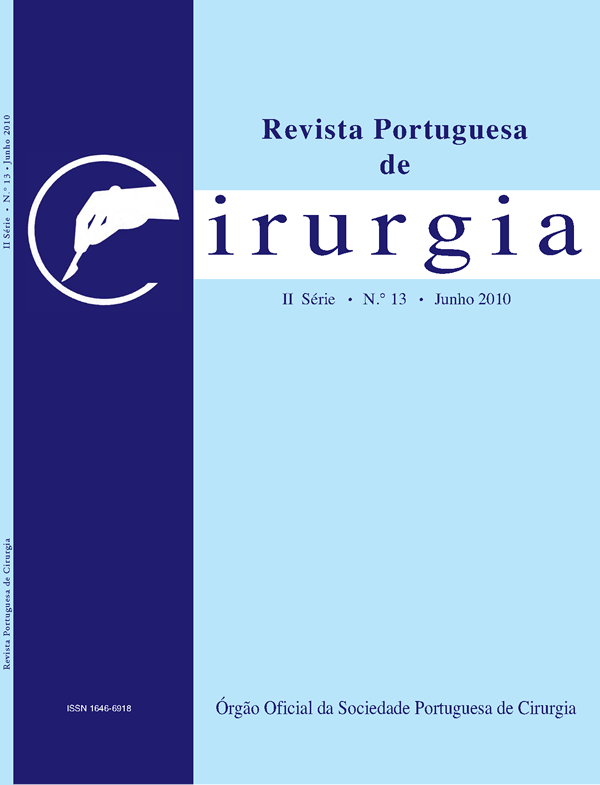Small Bowel Leiomyosarcoma – a case report
Abstract
Leiomyosarcomas (LMS) are rare mesenchymal tumours. LMS of the small bowel originate from smooth muscle cells from muscularis propria, with a peak of incidence around 60 years of age, without characteristic clinical signs, being, most of the time, detected when studying the cause of an occult haemorrhage or intestinal occlusion, with findings in CT scan or US.
We report a case of a female patient, of 53 years of age, brought at our assistance with complaints of hipogastric discomfort, with a palpable mass in hipogastro and umbilical region, and that after performing an abdominal CT scan, was disclosed a mass, with 12 cm, appearing to have involvement of jejunal loops.
In surgery, a jejunal mass, with extra-luminal growth was disclosed and excised, whose histology identified as being a Leiomyosarcoma. With a 24 month of follow-up, there is no recurrence.
Keywords: leiomyosarcoma; neoplasia; small bowel.
Downloads
Downloads
Published
Issue
Section
License
Para permitir ao editor a disseminação do trabalho do(s) autor(es) na sua máxima extensão, o(s) autor(es) deverá(ão) assinar uma Declaração de Cedência dos Direitos de Propriedade (Copyright). O acordo de transferência, (Transfer Agreement), transfere a propriedade do artigo do(s) autor(es) para a Sociedade Portuguesa de Cirurgia.
Se o artigo contiver extractos (incluindo ilustrações) de, ou for baseado no todo ou em parte em outros trabalhos com copyright (incluindo, para evitar dúvidas, material de fontes online ou de intranet), o(s) autor(es) tem(êm) de obter, dos proprietários dos respectivos copyrights, autorização escrita para reprodução desses extractos do(s) artigo(s) em todos os territórios e edições e em todos os meios de expressão e línguas. Todas os formulários de autorização devem ser fornecidos aos editores quando da entrega do artigo.



